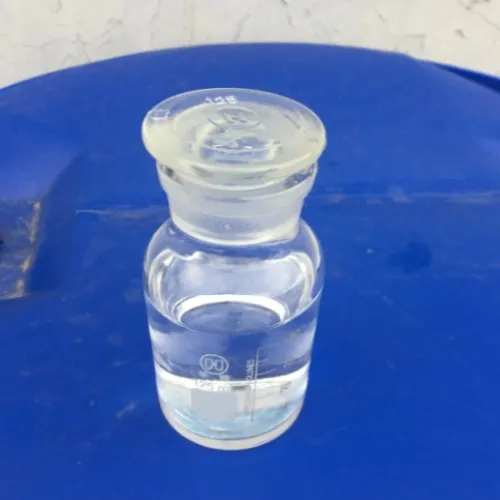Warning: Undefined array key "title" in /home/www/wwwroot/HTML/www.exportstart.com/wp-content/themes/1198/header.php on line 6
Warning: Undefined array key "file" in /home/www/wwwroot/HTML/www.exportstart.com/wp-content/themes/1198/header.php on line 7
Warning: Undefined array key "title" in /home/www/wwwroot/HTML/www.exportstart.com/wp-content/themes/1198/header.php on line 7
Warning: Undefined array key "title" in /home/www/wwwroot/HTML/www.exportstart.com/wp-content/themes/1198/header.php on line 7
- Afrikaans
- Albanian
- Amharic
- Arabic
- Armenian
- Azerbaijani
- Basque
- Belarusian
- Bengali
- Bosnian
- Bulgarian
- Catalan
- Cebuano
- China
- China (Taiwan)
- Corsican
- Croatian
- Czech
- Danish
- Dutch
- English
- Esperanto
- Estonian
- Finnish
- French
- Frisian
- Galician
- Georgian
- German
- Greek
- Gujarati
- Haitian Creole
- hausa
- hawaiian
- Hebrew
- Hindi
- Miao
- Hungarian
- Icelandic
- igbo
- Indonesian
- irish
- Italian
- Japanese
- Javanese
- Kannada
- kazakh
- Khmer
- Rwandese
- Korean
- Kurdish
- Kyrgyz
- Lao
- Latin
- Latvian
- Lithuanian
- Luxembourgish
- Macedonian
- Malgashi
- Malay
- Malayalam
- Maltese
- Maori
- Marathi
- Mongolian
- Myanmar
- Nepali
- Norwegian
- Norwegian
- Occitan
- Pashto
- Persian
- Polish
- Portuguese
- Punjabi
- Romanian
- Russian
- Samoan
- Scottish Gaelic
- Serbian
- Sesotho
- Shona
- Sindhi
- Sinhala
- Slovak
- Slovenian
- Somali
- Spanish
- Sundanese
- Swahili
- Swedish
- Tagalog
- Tajik
- Tamil
- Tatar
- Telugu
- Thai
- Turkish
- Turkmen
- Ukrainian
- Urdu
- Uighur
- Uzbek
- Vietnamese
- Welsh
- Bantu
- Yiddish
- Yoruba
- Zulu
Jul . 29, 2024 21:46 Back to list
Exploring the Benefits and Uses of Xylitol for Dental Health and Sweetening Alternatives
The Sweet Benefits of Xylitol
In recent years, the search for healthier sugar alternatives has gained significant momentum, leading to increased interest in natural sweeteners. Amongst these, xylitol has emerged as a popular choice due to its unique properties and health benefits. This article will explore what xylitol is, how it differs from regular sugar, and the potential advantages of incorporating it into your diet.
What is Xylitol?
Xylitol is a sugar alcohol, a type of carbohydrate that occurs naturally in many fruits and vegetables. It is derived from birch wood or corn and is often used as a sugar substitute in sugar-free products. Xylitol has a sweetness level comparable to that of sucrose (table sugar) but contains significantly fewer calories—about 2.4 calories per gram, compared to 4 calories per gram for sugar.
How Does Xylitol Work?
Xylitol’s molecular structure resembles that of sugar, allowing it to interact with taste receptors in our mouths. However, it is metabolized differently by the body. Unlike regular sugar, xylitol does not spike blood glucose or insulin levels, making it a favorable option for individuals managing diabetes or those seeking to reduce their sugar intake.
Moreover, xylitol is known for its dental benefits. It has been shown to inhibit the growth of harmful bacteria in the mouth, thus preventing tooth decay and promoting oral health. Many dental care products, including chewing gum and toothpaste, are now formulated with xylitol as a key ingredient.
Health Benefits of Xylitol
1. Dental Health The most well-known benefit of xylitol is its positive impact on dental health. By preventing bacterial growth, it reduces the risk of cavities and promotes the remineralization of enamel. Some studies suggest that regular consumption of xylitol can lead to a significant decrease in dental caries.
xylit xylitol

2. Low Glycemic Index Xylitol has a low glycemic index, making it suitable for diabetics and those following low-carb diets. It can be sweetened in recipes without the accompanying sugar-related spikes in blood sugar levels.
3. Supports Ear and Sinus Health Xylitol has been associated with promoting ear and sinus health. Some research indicates that it may help reduce the incidence of ear infections in children by inhibiting the growth of bacteria in the nasopharynx.
4. Weight Management As a lower-calorie sweetener, xylitol can be an effective tool for those trying to manage their weight. Substituting xylitol for sugar in foods and beverages allows for a sweet taste with fewer calories, aiding in weight loss or maintenance efforts.
Considerations and Usage
Despite its many benefits, xylitol should be consumed with caution, particularly for those with sensitive digestive systems. It can cause digestive issues like bloating, gas, or diarrhea in some individuals when consumed in large quantities. Therefore, it is advisable to start with small amounts and gradually increase as tolerated.
Additionally, it is crucial to note that xylitol is extremely toxic to dogs. Pet owners should be vigilant and keep products containing xylitol out of reach, as even a small amount can cause a rapid insulin release in dogs, leading to severe health issues.
Conclusion
Xylitol presents an exciting and beneficial option for those looking to reduce sugar intake without sacrificing sweetness. Its properties not only provide a healthier alternative for sweetening foods but also contribute positively to dental and overall health. As with any dietary change, it is best to consult with a healthcare provider, especially for those with specific health concerns. Incorporating xylitol into your diet could be a small but impactful step towards a healthier lifestyle.
Latest news
-
Certifications for Vegetarian and Xanthan Gum Vegetarian
NewsJun.17,2025
-
Sustainability Trends Reshaping the SLES N70 Market
NewsJun.17,2025
-
Propylene Glycol Use in Vaccines: Balancing Function and Perception
NewsJun.17,2025
-
Petroleum Jelly in Skincare: Balancing Benefits and Backlash
NewsJun.17,2025
-
Energy Price Volatility and Ripple Effect on Caprolactam Markets
NewsJun.17,2025
-
Spectroscopic Techniques for Adipic Acid Molecular Weight
NewsJun.17,2025

